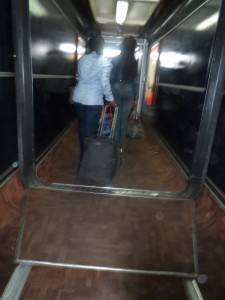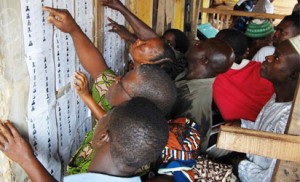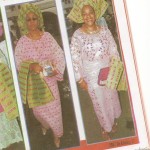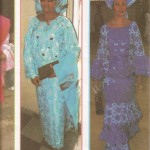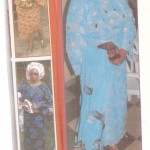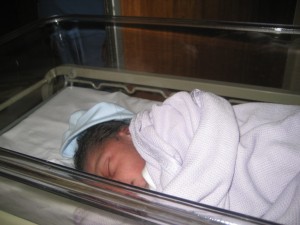ÌJÀPÁ/Àjàpá JẸ ÈRÈ AIGBỌRAN ÀTI ÌWÀ Ọ̀KANJÚÀ: THE RESULT OF DISOBEDIENCE AND GREED
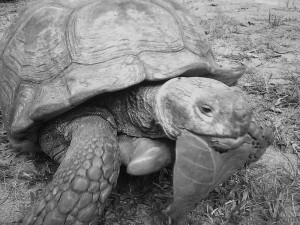
The tragic Tortoise — having eaten food made for his wife by the Herbalist — there really should have been a warning as to consequence. Image is courtesy of @theyorubablog
Ní ayé àtijọ, Yáníbo ìyàwó Ìjàpá/Àjàpá gbìyànjú títí ṣùgbọ́n kò rí ọmọ bí. Ọmọ bíbí ṣe pàtàkì ní ilẹ̀ Yorùbá, nítorí èyí ìrònú ma mba obìnrin tí kò bá ri ọmọ bi tàbí tí ó yà àgàn. Yáníbo ko dúró lásán, ó tọ Babaláwo lọ láti ṣe ãjo bí òhun ti le ri ọmọ bí.
Babaláwo se àsèjẹ fún Yáníbo, ó rán Ìjàpá láti lọ gba àsàjẹ yi lọ́wọ́ Babaláwo. Babaláwo kìlọ̀ fún Ìjàpá gidigidi wípé õgùn yí, obìnrin nìkan ló wà fún, pé kí o maṣe tọwò. Ìjàpá ọkọ Yáníbo ṣe àìgbọràn, ó gbọ õrùn àsèjẹ, ó tanwò, ó ri wípé ó dùn, nítorí ìwà wobiliki ọkánjúwà, o ba jẹ àsèj̀ẹ tí Babaláwo ṣe ìkìlọ̀ kí ó majẹ. Ó dé́lé ó gbé irọ́ kalẹ̀ fún ìyàwó, ṣùgbọ́n láìpẹ́ ikùn Ìjàpá bẹ̀rẹ̀ sí wú. Yorùbá ni “ohun ti a ni ki Baba mágbọ, Baba ni yio parí rẹ”. Bi ikùn ti nwu si bẹni ara bẹ̀rẹ̀ si ni Ìjàpá, ó ba rọ́jú dìde, ó ti orin bẹnu bi o ti nsáré tọ Babaláwo lọ:
Babaláwo mo wa bẹ̀bẹ̀, Alugbirinrin 2ce
Õgùn to ṣe fún mi lẹ́rẹkan, Alugbinrin
Tóní nma ma fọwọ́ kẹnu, Alugbinrin
Tóní nma ma fẹsẹ kẹnu, Alugbinrin
Mo fọwọ kan ọbẹ̀, mo mú kẹnu, Alugbinrin
Mofẹsẹ kan lẹ mo mu kẹnu, Alugbinrin
Mobojú wo kùn o ri gbẹndu, Alugbinrin
Babaláwo mo wa bẹ̀bẹ̀, Alugbinrin 2ce
Play the Tortoise’ tragic song here:
You can also download the Yoruba alphabets by right clicking this link: Babalawo mo wa bebe(mp3)
Nígbátí ó dé ilé́ Babaláwo, Babaláwo ni ko si ẹ̀rọ̀. Ikùn Ìjàpá wú títí o fi bẹ, tí ó sì kú.
Ìtàn yí kọ wa pe èrè ojúkòkòrò, àìgbọ́ràn, irọ́ pípa àti ìwà burúkú míràn ma nfa ìpalára tàbí ikú. Ìtàn Yorùbá yi wúlò lati ṣe ìkìlọ̀ fún àwọn ti o nwa owó òjijì nípa gbígbé õgùn olóró mì lati kọjá lọ si òkè okun/Ìlúòyìnbó lai bìkítà pé, bí egbògi olóró yí ba bẹ́ si inú lai tètè jẹ́wọ́, ikú ló ma nfa. Ìtàn nã bá gbogbo aláìgbọràn àti onírọ́ wí.
ENGLISH TRANSLATION Continue reading
Originally posted 2014-11-21 10:45:28. Republished by Blog Post Promoter



